Latest news from Adlershof research institutes
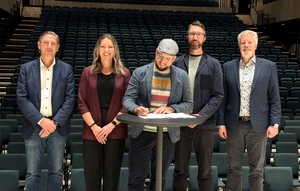
Networked European innovation ecosystem: Campus Squared initiative launched
Cooperation agreement between Adlershof Technology Park and European science locations:
On 12 November, WISTA Management GmbH, the operating company of Adlershof Technology Park, and representatives of other European science locations signed a cooperation agreement officially launching “Campus Squared”—a…

HZB wins HR Energy Award 2025 for recruitment campaign
The research institute uses gamification elements to get more young people interested in IT training:
The Helmholtz Centre Berlin (HZB) is breaking new ground in attracting talented young people to IT training. HZB was presented with this year’s HR Energy Award for its “Go for IT! Recruitainment for IT training”…
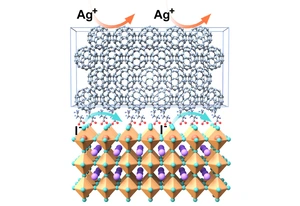
Long-term stability for perovskite solar cells: a big step forward
A Teflon-like layer ensures exceptional stability and consistent efficiency:
Perovskite solar cells are inexpensive to produce and generate a high amount of electric power per surface area. However, they are not yet stable enough, losing efficiency more rapidly than the silicon market…
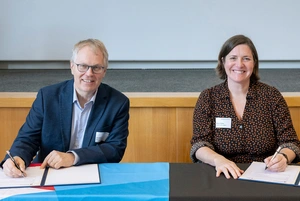
BAM and University of Birmingham extend strategic research partnership
Thematische Schwerpunkte sind Energie, Additive Fertigung, Umwelt- und Lebenswissenschaften sowie Chemie und Materialien:
The Federal Institute for Materials Research and Testing (BAM) and the University of Birmingham (UoB) are continuing their successful strategic research partnership. The Memorandum of Understanding (MoU), originally…
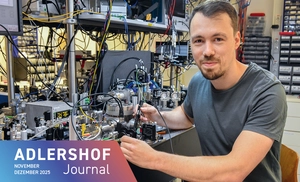
The timekeeper
Oliver Fartmann is working on an improved atomic clock:
What are the paths into science and research? “I was quite good at maths, I think,” says Oliver Fartmann. Good enough, at any rate, to catch the attention of his physics teacher at the Archenhold Gymnasium in…
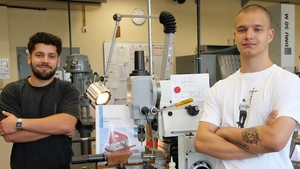
Two precision mechanics from HZB are Berlin's best trainees
Edgar Lunk and Fiete Buchin completed their training with top results:
Two former apprentices from the HZB workshop have achieved something remarkable: Fiete Buchin and Edgar Lunk completed their training as precision mechanics, taking first and second place in all of Berlin. In this…
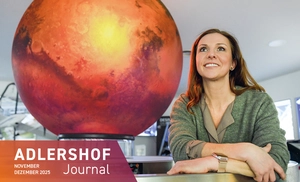
Mars in 3D
Using a special camera developed in Adlershof, planetary geologist Daniela Tirsch and her team are mapping planet Mars:
For more than 20 years, the Mars Express probe of the European Space Agency (ESA) has been studying the surface and atmosphere of Mars. On board is Germany’s most significant contribution to the mission: the High…

MBI researchers characterise ultrashort VUV light pulses with electron FROG
New technique enables complete analysis of femtosecond pulses in the vacuum ultraviolet range:
A team of researchers at the Max Born Institute managed to fully characterise few-femtosecond-long light pulses tunable in the vacuum ultraviolet. These results unlock the possibility for studying valence electron…

Electromobility: Saving costs and facilitating the energy transition through bidirectional charging
Analysis by the Reiner Lemoine Institute published on behalf of the Agora Verkehrswende think tank:
Feeding electricity from vehicle batteries into the grid can be financially worthwhile for users of e-cars and at the same time serve the electricity sector. This is illustrated by an analysis by the think tank Agora…
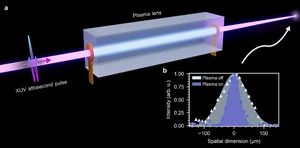
Breakthrough in attosecond science
Research team from MBI and DESY develops a plasma lens that can focus attosecond pulses, thereby overcoming significant limitations:
A team of researchers from the Max Born Institute (MBI) in Berlin and DESY in Hamburg has demonstrated a plasma lens capable of focusing attosecond pulses. This breakthrough substantially increases the attosecond…
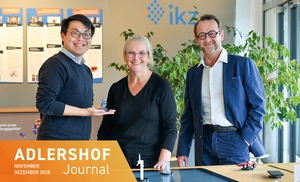
Crystals and careers
How research is turned into business:
New technologies require one thing above all else. They take time. It takes years for a good idea to grow into a viable spin-off,” says Thomas Schröder, director of the Leibniz Institute for Crystal Growth (IKZ) in…
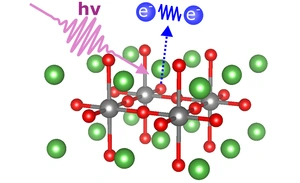
Energy of charge carrier pairs in cuprate compounds
Measurements at BESSY II contribute to a better understanding of high-temperature superconductivity:
High-temperature superconductivity is still not fully understood. Now, an international research team at BESSY II has measured the energy of charge carrier pairs in undoped La₂CuO₄. Their findings revealed that the…
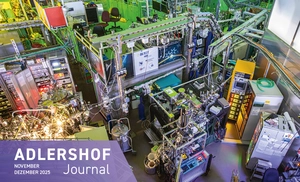
Time matters
Which research questions call for short measurement times, and which analyses require longer ones? A brief journey through time and the Adlershof campus:
Watching molecular and atomic building blocks while they work? This is made possible by operando studies. Such deep insights at an atomic resolution are facilitated by BESSY II, a research facility operated by the…
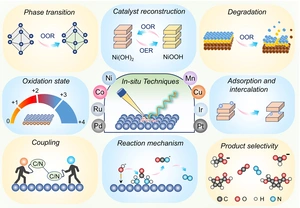
Electrocatalysis with dual functionality – an overview
Synchrotron sources provide insights into complex reactions and can thus help in the development of hybrid electrolysers:
Hybrid electrocatalysts can produce green hydrogen, for example, and valuable organic compounds simultaneously. This promises economically viable applications. However, the complex catalytic reactions involved in…
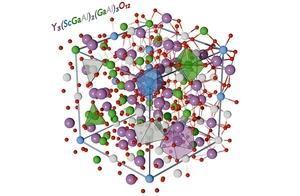
YSGAG: A Breakthrough Substrate for Quantum Magnonics from IKZ
New material allows quantum experiments at low temperatures:
Dr. Christo Guguschev and his team from the Leibniz-Institut für Kristallzüchtung (IKZ), in collaboration with international partners, has developed and demonstrated a new diamagnetic substrate material, nearly…
Events / Dates
-
LEAP im IGZ, 6. Etage
Max Born Hall
Bunsen-Saal
WISTA Conference Centre / BESSY II
-
BESSY@HZB User Meeting / Bunsen-Saal
Johann Von Neumann Haus, Room 1.115
-
Leap Quantum Technology Hub & Events
-
Erwin Schrödinger-Zentrum